Step 5: Cleaning House
Recall that, when we completed Step 3, “Made a decision to turn our will and our lives over to the care of God,” we saw that we were on the way to restoring our interconnection with God. We trusted God enough to turn our will and lives into God’s care. The purpose of Step 4 was to examine our messes and see what refuse was cluttering up the possibility of having a new and clean relationship with ourselves, present and future.
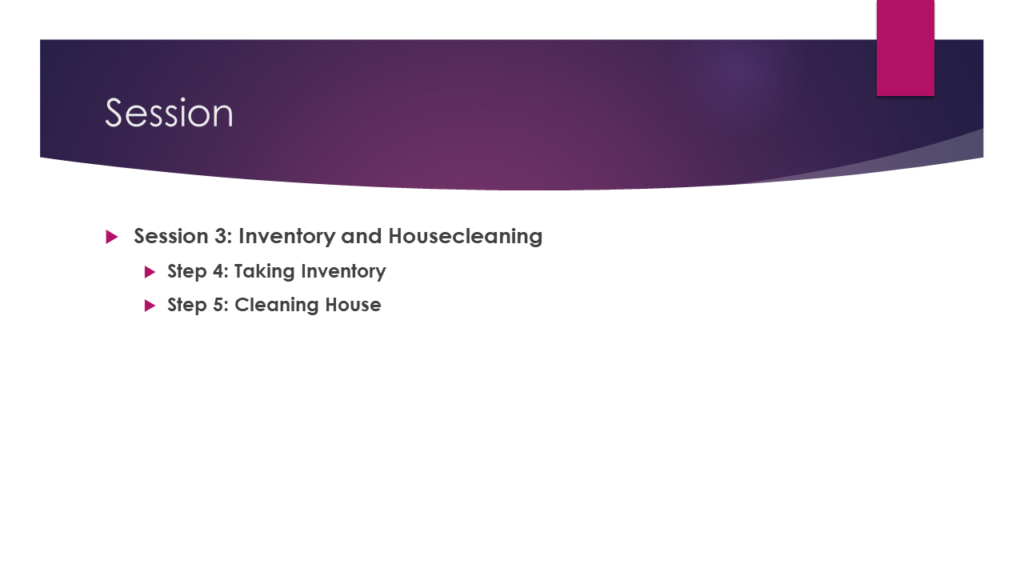
We’ve had a chance to look at all the junk we’re carrying around with us. Now, how do we get rid of it? That’s where Step 5 comes in. Let’s read it.
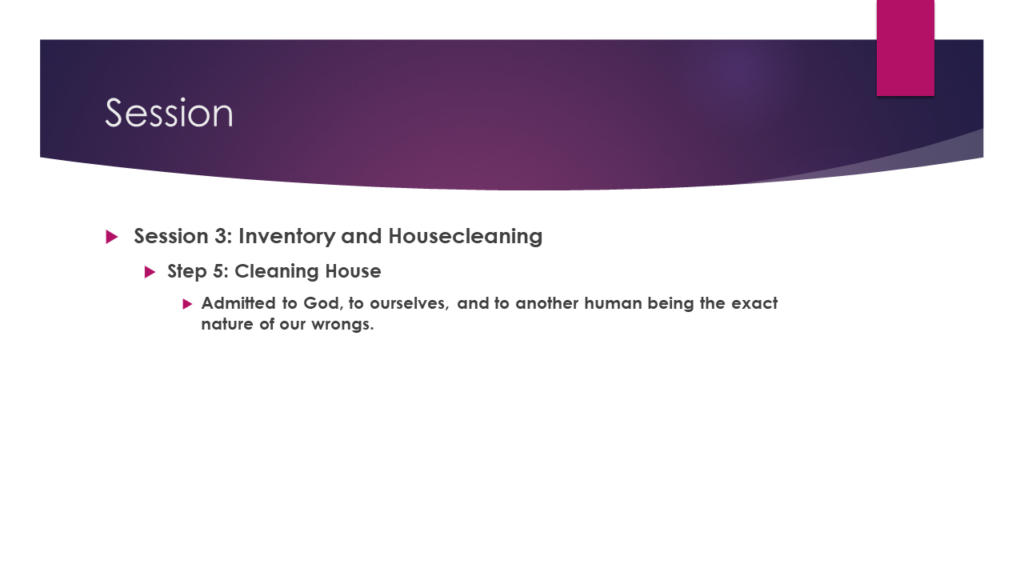
“Admitted to God, to ourselves, and to another human being the exact nature of our wrongs.” Almost every human being who has encountered this step has had the same complaint, even when they came from religious traditions that practiced confession of sins. “Why,” they say, “do I need to share the dregs of my life with another person? Isn’t the fact that God and I know about this enough?” There are several reasons why completing this step in its entirety is important.
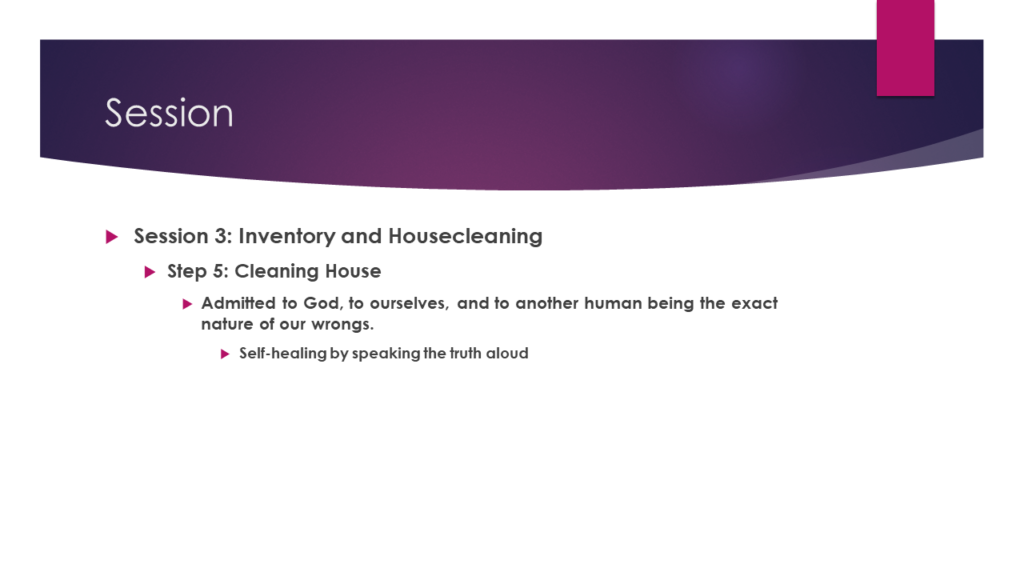
Just as writing our inventory out in our own hand changes the way our brains process the information, so speaking our truth aloud to another—painful as it may be—also creates a psychic change. From a purely therapeutic perspective, saying the words gives us a chance to hear ourselves. There’s a type of talk therapy called “Mm-hmm” therapy, where the therapist provides a safe space where the client can talk and, surprisingly enough, can cure her- or himself with only minimal intervention from the therapist. But speaking aloud to an empty room isn’t the same. There needs to be a conscious person present to receive it. That takes a giant step toward blasting away our self-deception and loneliness.
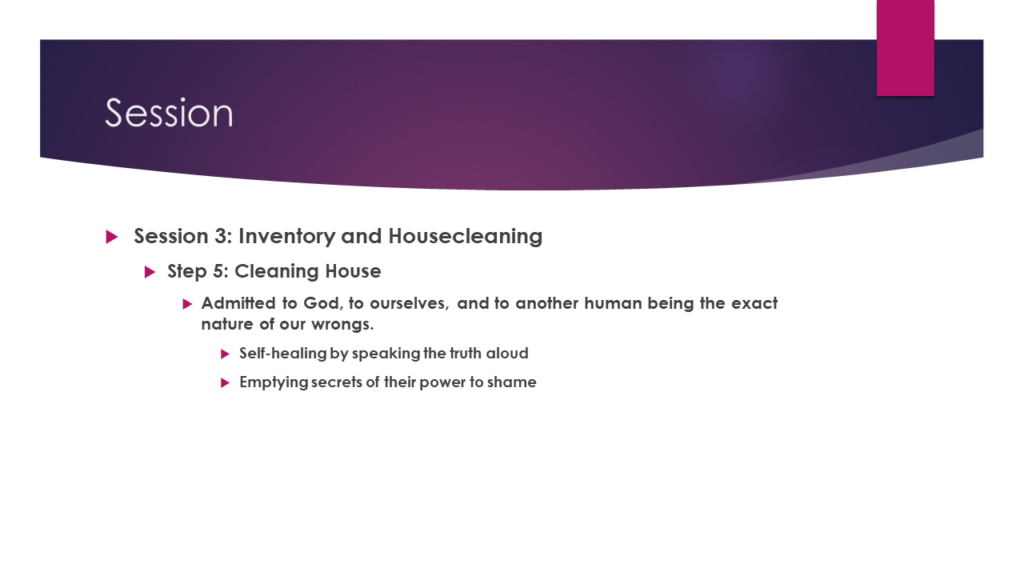
Another important reason for sharing our secrets with another person is that our secrets keep us sick. Once our deepest, darkest, dirtiest secrets are shared with another, they’re no longer secret. Someone else knows. Much of the corrosive energy of our wrongs comes from the power of shame. Sharing with another honestly relieves guilt and destroys shame. The miraculous part of this is that if your confidant is well-chosen and trustworthy, you’ll find that even the worst of your wrongs will seem far less important once they’re shared. So, whom should you choose to share your fifth step with? Be careful here. Just make sure that you can trust that person implicitly. Good prospects are clergy or people with long-term recovery in a twelve-step program. It’s not recommended to use spouses or partners or relatives or anyone who appears on your fourth step analysis sheets.
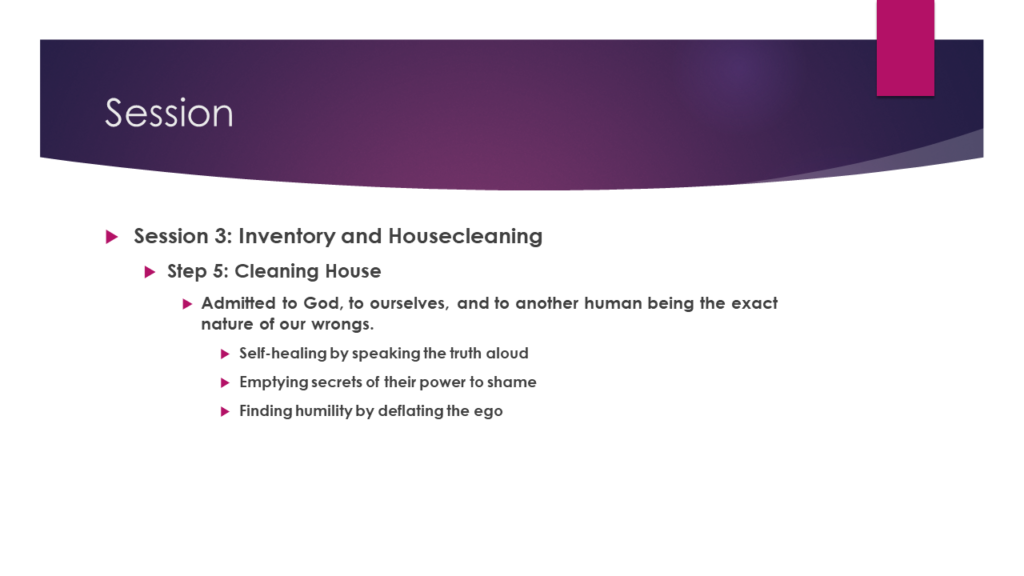
A third reason is a very necessary deflation of the ego. The ego is that part of ourselves that believes wrongly that it is in the driver’s seat, be it of our own lives or of the universe. It’s the ego that says, “I’ve got this,” and “I can’t imagine I need to do this.” It’s the ego that has resisted taking the third step all along. It’s the ego that refuses to trust God or others. Facing another person with honesty and without pretense and allowing them to see the real us—all of us—is an ego-deflating experience. It’s another step along the road to humility. What is humility? It’s not humiliation. It’s seeing ourselves as God sees us—with all the plusses and minuses that involves—and acting accordingly. Until we’ve taken this step, we’ve been carrying a heavy burden of secrets, guilt, and shame. Once you go aside and share everything on your fourth step inventory with another trusted individual, and you drop the rock you’ve been so used to carrying, you’ll be amazed at how heavy that burden was.
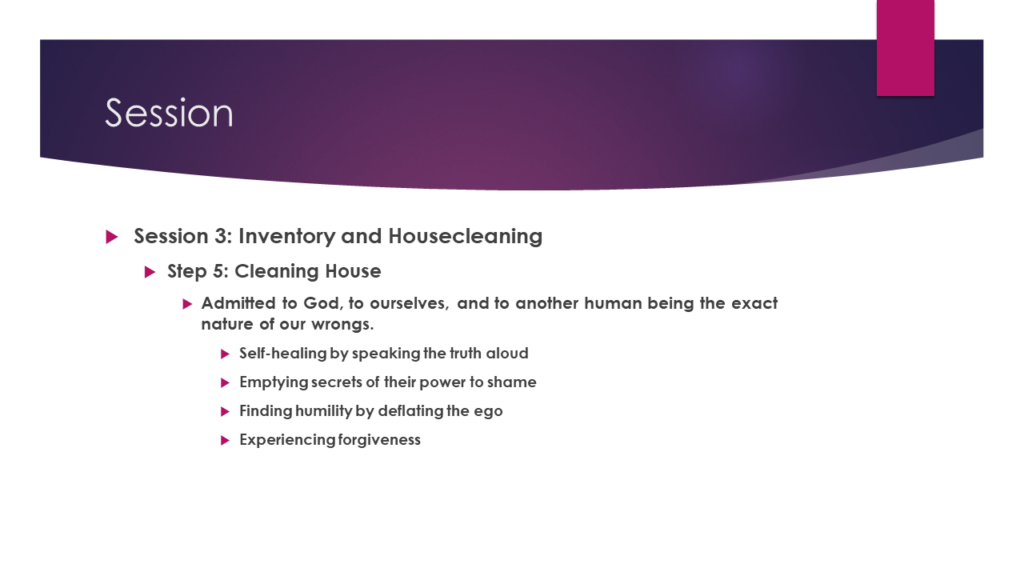
Regardless of whether this admission of our wrongs is done in a religious context or not, it generates a spiritual environment. It creates interconnections. The very fact that our openly shared faults and failings are received and accepted by another human being without judgment or condemnation implies reconciliation and forgiveness. In all cases, and this one in particular, forgiveness does not imply approval; what forgiveness means is that your moral debt has been canceled. We still have an obligation in justice to provide whatever restitution we can for whatever harm we’ve done, but that will be covered in a later step. Avoid doing anything about that for the time being. For now, forgiveness for you means release from guilt. If your admission of wrongs is done in a religious context, your listener may be authorized by the community to grant you absolution. However, whether we receive a formal absolution or not, the result is the same: our reconciliation with God and with ourselves has begun. We’ve taken the first practical step toward cleaning up our messes and clearing out the static from our lines of communication.
Remember that we’re suffering from a spiritual illness. In Step 4 and Step 5, we’ve taken an inventory of our symptoms and applied first aid. Now, it’s time to do some serious healing.
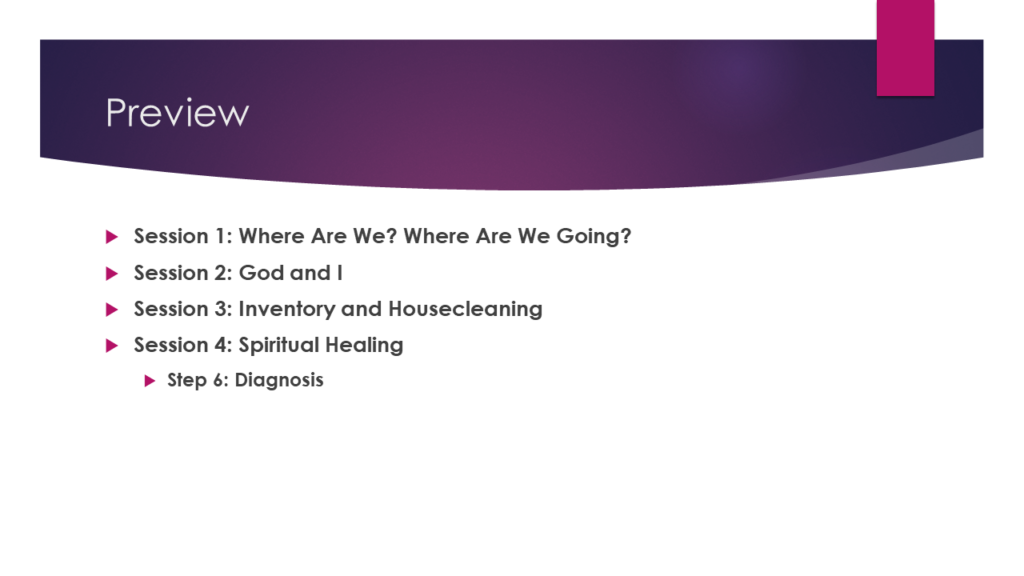
Next time, in session four, we’re going to review the results of our moral inventory to attempt to discover the root causes of our spiritual illness: the unhealed areas of our personality. In Step 6, we’ll do whatever we can to identify and diagnose these issues.
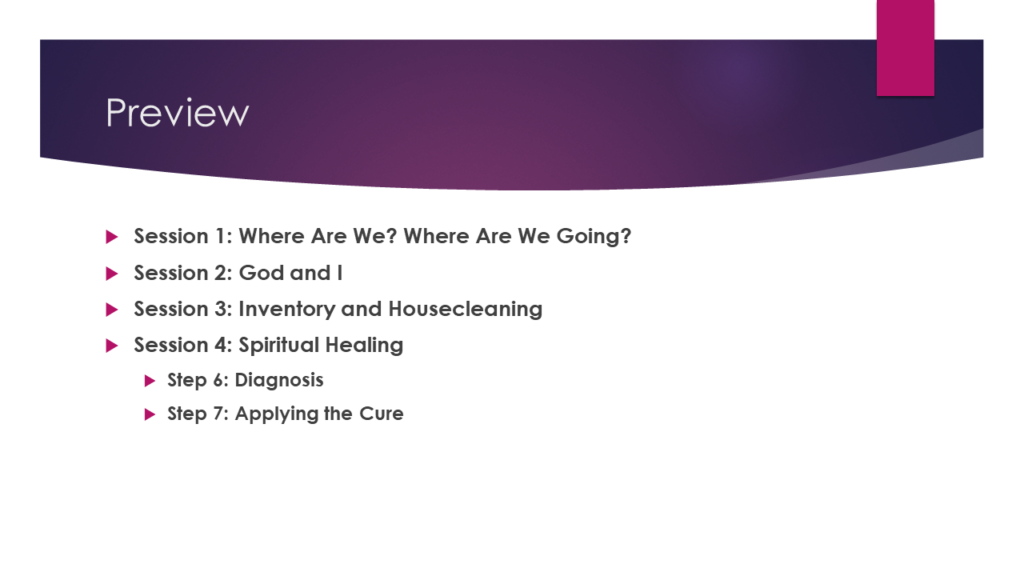
Then, finally, in Step 7, we’ll apply a spiritual cure to the causes of our spiritual illness. We want to be certain that we retain an awareness of those problem areas of our personality so that they will not recur without our knowledge.
You’re going to have homework to do before our next session. I’d ask you to print out and complete the moral inventory form, then, using what you’ve discovered in the inventory, print out and complete the inventory analysis form. Use as many pages of each as you need to be fearless and thorough. Be sure to bring your completed forms with you next week.
